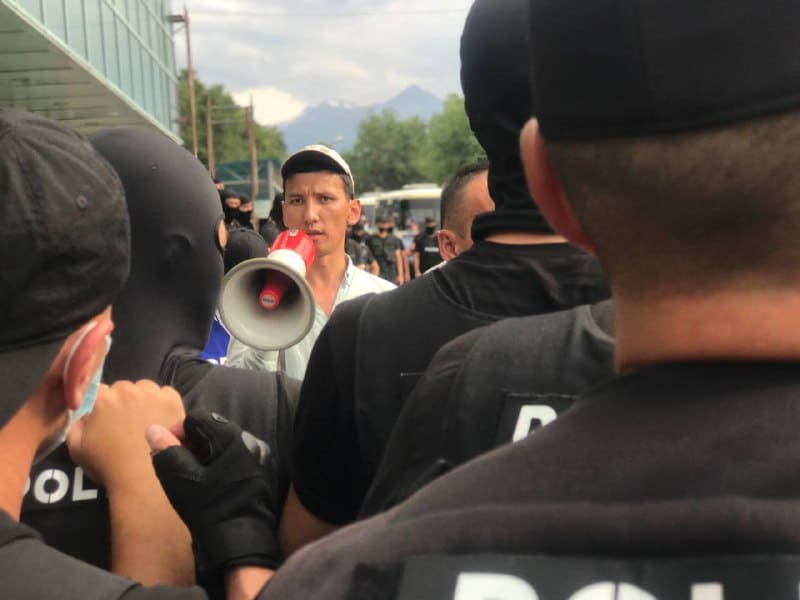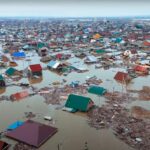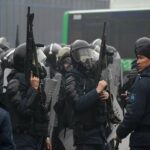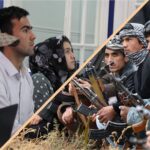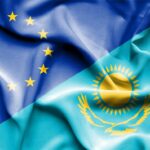On the morning of March 1st, 2024, reports surfaced alleging that Abzal Dostiyarov, an activist, was subjected to severe brutality by law enforcement officers. The incident occurred as he was taking his young daughter to kindergarten.
According to his live streams and relatives, Dostiyarov was seized and violently beaten by the police, resulting in head injuries and to his arm.
Following his detainment at the District Police Department, a court delivered a verdict in the evening, without thorough investigation, sentencing him to 20 days of detention in Shonja city. The charges against him stem from his alleged participation in and broadcasting of protests linked to the trial of independent journalist Duman Mukhammedkarim. Additional sources suggest that the arrest may be linked to the four applications submitted on March 3rd to hold a rally in Almaty in support of the accused journalist.
While Dostiyarov was not among those who appealed for a rally, it is likely that the police preventively detain known activists and political opposition. At least 5 more people have been arrested in the last three weeks just because they were suspected of attending the trial of Mukhammedkarim.
This is not a new phenomenon, as the state has been found prosecuting people who stand in solidarity with political prisoners. Previously almost 20 people were prosecuted for attending and publicly supporting Aigerim Tleuzhanova, another activist and journalist charged over her involvement in a plot to seize the country’s main airport during the January 2022 unrest.
Duman Mukhammedkarim is an independent journalist, who previously made a career working for a state-owned news channel. In 2021, he left the public sector and started his own YouTube channel, Ne Deidi (What’s said?). Known for his coverage of the events of Bloody January in 2022, his channel served as platform for political activism and critique of Kazakh authorities and institutions. His coverage on elections, activism, and rally organizing, has resulted in several of his arrests and much time spent in custody. In May 2023 a criminal case had been opened again Mukhammedkarim, during which he was already under administrative detention for allegedly violating regulations on peaceful assembly. By June, has been implicated as a suspect under two sections of the Criminal Code: “Participation in the activities of a banned organization” (Article 405, part 2) and “Financing of extremism” (Article 258, part 1). With the latter accusation risking imprisonment for five to nine years. According to a lawyer, Galum Nurpeisov, both criminal cases are linked to an interview he conducted with Mukhtar Ablyazov, an exiled opposition leader in December 2022. Ablyazov is the head of the opposition movement, Democratic Choice of Kazakhstan, which has been recognized as an extremist organization by Kazakhstan authorities.
Duman Mukhammedkarim’s trial began on the 12th of February 2024. The judge granted Saken Kenesov’s, (the prosecutor), request to hold the trial behind closed doors, citing the risk of security concerns. Moreover, supporters and journalists were denied entry into the courtroom on the pretext of insufficient space in the courtroom. The closure of the trial results in limited access to information regarding the development of the case.
Closed trials are prevalent occurrences in Kazakhstan particularly when it comes to political activists and members of opposition. This was quite common with key cases related to the Bloody January events, with individuals such as Marat Zhylanbayev, a government critic and leader of unregistered party ‘Alga Kazakhstan.’ His trial was closed to the public and on November 30th was sentenced to seven years in prison on unfounded charges. Closed-court proceedings are frequent for government officials accused of malpractice, including torture and other human rights violations. For example, 11 officials charged for their involvement in the Bloody January protests have had their cases closed to the public, with many ending prematurely due to “insufficient evidence.”
Almost a year in detention, Mukhammedkarim criticised the conditions in the temporary detention centre, addressing issues regarding food, sanitation, and treatment of other detainees. Moreover, on the 1st of November, he described his multiple hunger strikes, self-harm incidents, and a suicide attempt made to attract the attention of authorities to the horrible conditions of his detention, but to no avail. The international response comprises of Human Rights Watch (HRW) statement, on the 8th of February, urging authorities to dismiss the baseless case against Mukhammedkarim and called for his immediate release. This comes amidst a surge in prosecutions against critics on similar grounds. HRW reveal that Mukhammedkarim is the second government critic to go on trial on broad extremism charges in recent months.
Both Mukhammedkarim and Dostiyarov are victims of the repressive tactics employed by Kazkakh authorities to silence and suppress activist dissent, while the attackers and officials guilty of torture have yet to be brought to justice.


